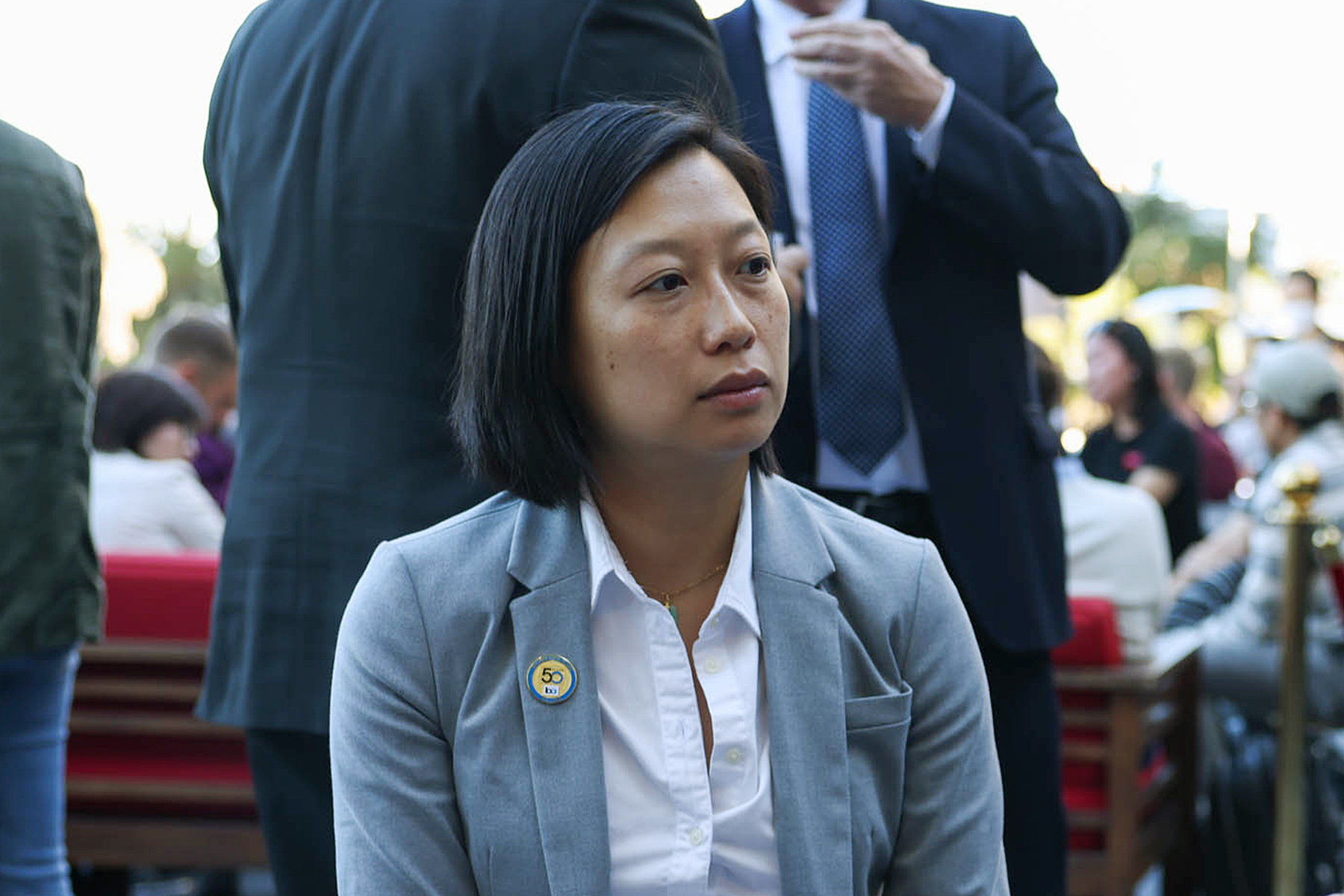Janice Li felt something hit her neck as she waited for a bus in Downtown San Francisco. It was a gummy candy, and she believed it was from some teenagers not far away from her.
Li said when she tried to confront the teens and asked them to stop, the situation didn’t improve. Instead, she received some racist verbal harassment.
“I did feel unsafe in that situation,” said Li. “I felt very targeted.”
Li, a Chinese immigrant and the current president of the BART board, was heading home after attending a press conference about women and violence. Then, like many other Asian Americans who have been subjected to anti-Asian hate, she tweeted about the incident.
“These kinds of smaller-scale incidents, like the verbal harassment or kids throwing gummy worms at you, are making people feel unsafe or uncomfortable riding transit,” Li said. “Especially for Asian women and seniors.”
Calling the Cops?
Li’s incident of harassment came as the California state Legislature enacted a law requiring the many transit agencies, including BART and San Francisco Municipal Transportation Agency (SFMTA), to track the violence and other safety concerns.
She also works for the Asian community-based nonprofit Coalition for Community Safety and Justice, so this isn’t a new topic for her.
Harassment against Asians has increased, but some minor incidents reported to the Stop AAPI Hate platform do not rise to the criminal level, Li said. And in her own situation, she didn’t call 911 because she knew that wouldn’t help much.
“Don’t get me wrong: I know serious, dangerous incidents happen at BART and on public transit,” she said. “But the first thing that overwhelmingly makes women and AAPI folks feel uncomfortable is always the verbal kinds of harassment.”
She suggested there should be more community ambassadors whose presence will help and also can provide immediate support to women and seniors in similar situations. She’s also frustrated that there was an adult who was accompanying the kids at the time but who didn’t intervene. Instead, the woman merely laughed along.
Bystander Intervention
Li did not suggest that others do as she did.
“If there was another Asian woman in that situation like me, and they were feeling unsafe, they should first walk away,” she said.
Li then recommends that victims find someone—even a stranger from a shop nearby—and describe to them what happened, saying something like, “There are kids who are bothering me right now. Can you just stand with me for a moment?”
If you witness an incident like this, don’t address the offenders. Go to the victim and offer support. BART also provides tutoring on bystander intervention.
Li explained that because she has experience working with young teenagers, she decided to engage them rather than just walk away.
A day after Li tweeted about her experience, a video was going viral online showing another incident appearing to be harassment and assault that happened on a San Francisco bus.
San Francisco @BART just now. Guy w/lots of eggs came on and starting yelling to me and the Asian girl next to me “stupid Chinese bitch”. A man on the bus stepped in & the guy started throwing eggs at him. Guy got off bus threw eggs through window. We all have egg in our hair!! pic.twitter.com/C5p6shu9hZ
— Michelle Young (@michelleyoungNY) February 16, 2023
“These are the everyday experiences that people feel,” Li said.
